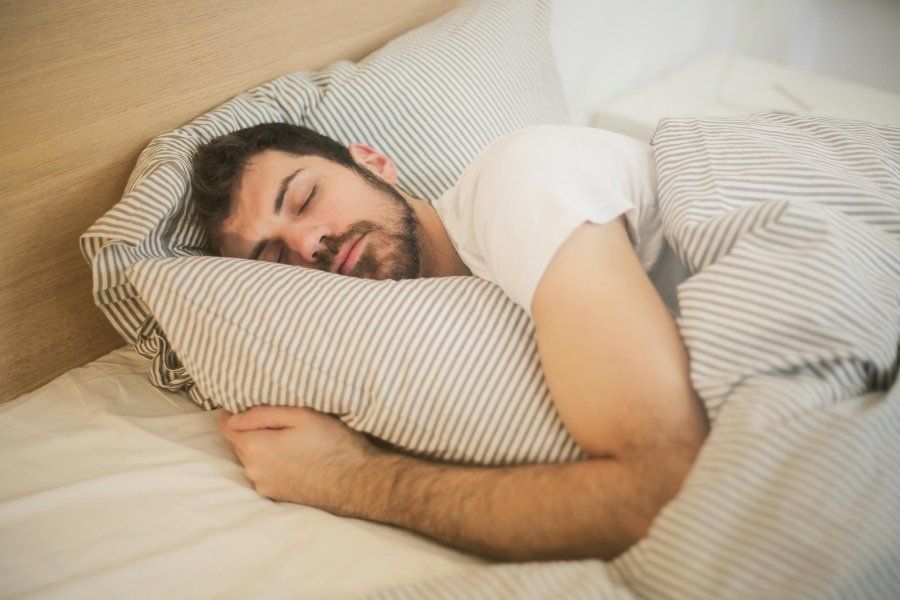Teeth Grinding & Clenching

Many people experience the discomfort and frustration of teeth grinding and clenching, often without even realizing it. If you wake up with discomfort in your jaw, you're not alone.
This condition, also known as bruxism, can lead to jaw pain, headaches, and long-term dental damage. Protect your smile and reclaim your comfort with expert treatment for bruxism at Dental Arts of Cherry Hills. We're dedicated to providing effective solutions tailored to your unique needs.
Understand Bruxism
Bruxism is a condition characterized by the involuntary grinding or clenching of teeth. You may experience it in one of two ways.
Nocturnal bruxism occurs unconsciously during sleep. Awake bruxism occurs when people grind or clench their teeth during the day, particularly when stressed or anxious.
Bruxism can be caused by a variety of factors, including stress, anxiety, sleep disorders, a misaligned bite, or certain medications.
Symptoms of Teeth Grinding & Clenching
If you wake up with a sore jaw, headache, or sensitive teeth, you may be experiencing bruxism. Recognizing the signs and symptoms is the first step toward protecting your smile.
- Jaw pain or stiffness, especially in the morning
- Headaches, particularly in the temples
- Earache
- Worn-down, flattened, or chipped teeth
- Increased tooth sensitivity to hot, cold, or sweets
- Sore gums
- Clicking or popping of the jaw joint
If you're experiencing any of these symptoms, it's important to seek treatment to prevent long-term damage to your teeth and jaw.
Long-Term Consequences of Untreated Teeth Grinding & Clenching
While occasional teeth grinding may not seem like a serious problem, untreated bruxism can have significant long-term consequences for your oral health and overall well-being.
- It can lead to cracked, chipped, flattened, or severely worn-down teeth, requiring extensive and costly dental repairs.
- In severe cases, bruxism can weaken teeth to the point of requiring extraction.
- It can strain the jaw joint, leading to pain, clicking, popping, and limited jaw movement - TMJ disorders (temporomandibular joint disorders).
- The constant clenching and grinding can cause chronic pain in the jaw muscles, making it difficult to eat, speak, and sleep.
- It can trigger tension headaches, migraines, and other types of head pain.
- Constant jaw muscle activity can lead to fatigue and soreness in the facial muscles.
- Bruxism can disrupt your sleep, leading to fatigue and daytime sleepiness.
Bruxism & Sleep Disorders
Bruxism is often linked to sleep disturbances and other sleep disorders. While the exact relationship is still being researched, teeth grinding and clenching may be more common in people who experience:
- Sleep Apnea: A condition characterized by pauses in breathing during sleep, which can lead to fragmented sleep and increased stress on the body. It is possible that bruxism may be caused by a subconscious attempt to open the airway during a sleep apnea event. Addressing sleep apnea can therefore relieve teeth grinding symptoms.
- Insomnia: Difficulty falling asleep or staying asleep can lead to increased stress and anxiety, which may contribute to bruxism. Working out what keeps your mind racing, can help ease symptoms.
Diagnosing Bruxism
At Dental Arts of Cherry Hills, we take a comprehensive approach to diagnosing bruxism. During your consultation, our dental expert, Dr. Kostas, will:
- Thoroughly examine your teeth and jaw to assess the extent of any damage or wear.
- Evaluate your bite and jaw alignment to identify any contributing factors.
- Discuss your symptoms, medical history, and sleep habits to gain a complete understanding of your condition.
- Use diagnostic tools, such as jaw muscle activity monitors, to assess the severity of your condition.
Treatment Options for Bruxism
Treatment options for teeth clenching and grinding focus on keeping your jaw relaxed so you can avoid grinding your teeth together.
While our bruxism treatment options can protect your smile from further damage, our comprehensive restorative dental care services can help repair any existing damage to your teeth caused by grinding and clenching, such as worn-down enamel, chips, or fractures.
Custom-Fitted Night Guards (Occlusal Splints)
A custom-fitted night guard, also known as an occlusal splint or bite splint, can be a comfortable and effective treatment for teeth grinding and clenching. It's one of the most common and effective ways to manage bruxism symptoms and protect your teeth from long-term damage.
Night guards are designed to provide cushioning between your upper and lower teeth, preventing grinding and clenching forces from damaging your teeth or straining your jaw joints and muscles. By creating a barrier, it can also help minimize the wear and tear that your teeth may experience.
However, not all night guards are created equal. Over-the-counter night guards can be bulky, uncomfortable, and ineffective, as they don't provide a precise fit. At Dental Arts of Cherry Hills, we create custom-fitted night guards that are precisely molded to fit your teeth and fit comfortably, it's worn while you sleep. It is tailored to your unique bite and jaw structure, ensuring optimal comfort, retention, and protection.
Bite Adjustment (Occlusal Equilibration)
In some cases, bruxism may be caused or worsened by a misaligned bite, also known as malocclusion. This means that your teeth don't come together properly when you bite down, creating uneven pressure on your jaw joints and muscles, which can trigger grinding and clenching.
Bite adjustment, also known as occlusal equilibration, involves carefully reshaping the biting surfaces of your teeth to create a more balanced and harmonious bite. This can be achieved through subtle reshaping of the enamel, the use of crowns or onlays to build up worn-down teeth, or in some cases, orthodontics to realign the teeth.
Dr. Kostas will use specialized instruments to gently adjust the shape of your teeth, aiming to create even contact and reduce pressure points. The procedure is typically painless and requires no anesthesia.
Botox Injections
For severe cases of bruxism, particularly when jaw muscle pain and hypertrophy (enlargement) have become prominent or obvious, Botox injections may offer significant relief.
Botox, or botulinum toxin, is a neurotoxin that temporarily weakens the muscles into which it is injected. By injecting small doses of Botox into the main chewing muscles, we can reduce their strength and activity, thereby reducing grinding and clenching forces.
This treatment option can help relieve jaw pain and headaches and reduce the forces that cause the teeth to grind. While the effects of Botox are temporary (typically lasting 3-6 months), this treatment can provide significant relief from bruxism symptoms and prevent further tooth damage. It's often used in conjunction with a night guard for comprehensive bruxism management.
Find Relief from Bruxism in Englewood, CO
At Dental Arts of Cherry Hills, Dr. Kostas offers gentle, effective, and personalized treatment to help you protect your smile and improve your quality of life. He takes the time to understand your individual needs and recommends the best course of treatment for you.
To schedule a consultation with Dr. Kostas, please call us at 720-868-8092 or request an appointment online. We’re committed to helping you reclaim your natural smile.
Frequently Asked Questions About Sedation Dentistry
What causes bruxism?
Bruxism can be caused by stress, anxiety, sleep disorders, a misaligned bite, and certain medications.
How do I know if I have bruxism?
Common symptoms of bruxism include jaw pain, headaches, earaches, worn-down teeth, and tooth sensitivity.
What are the risks of untreated bruxism?
Untreated bruxism can lead to tooth damage, tooth loss, TMJ disorders, and chronic jaw pain.
How can a night guard help?
A night guard can protect your teeth from grinding and clenching, relieving jaw muscle tension and preventing tooth damage.
How much does treatment cost?
The cost of bruxism treatment varies depending on the severity of your condition and the treatment options you choose.
Can bruxism be cured?
While there is no cure for bruxism, treatment can effectively manage the symptoms and prevent long-term damage.
